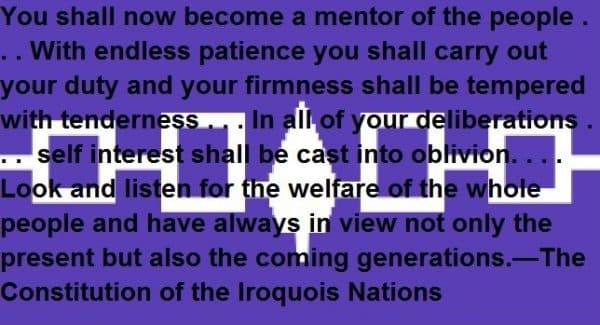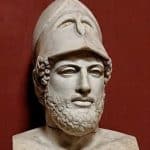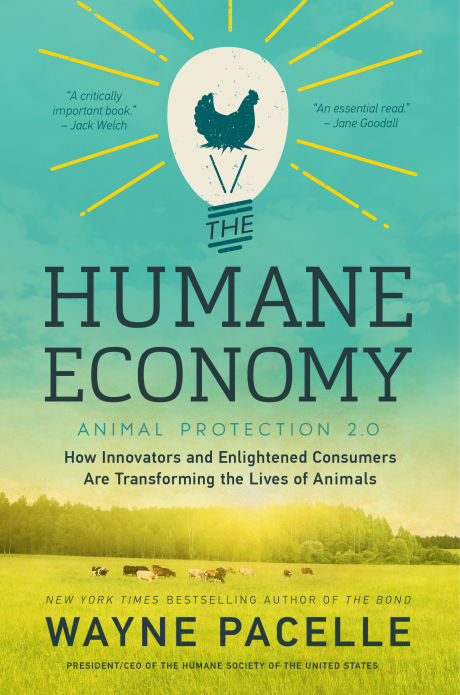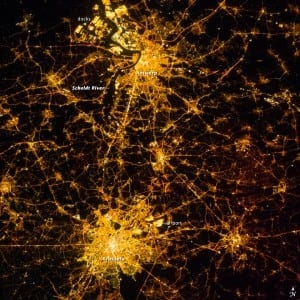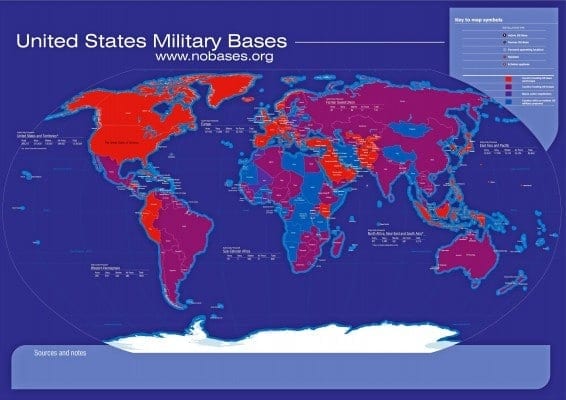Invisible Government Series II: 7.4 Billion Cheers for Real Democracy
![]() Moti Nissani, PhD
Moti Nissani, PhD
No Planet – No People
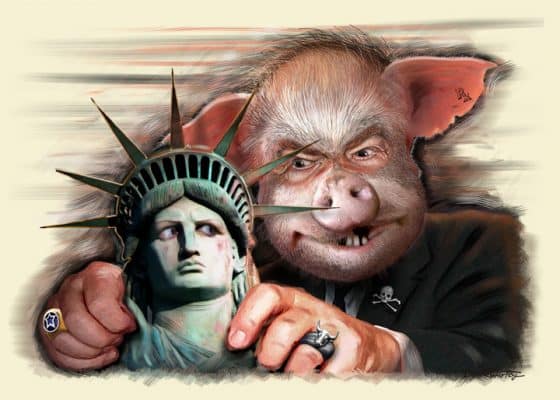
“Corporate Threat to Liberty.” DonkeyHotey
Part II of: Why does the Invisible Government Continue to Grow in Strength?
Summary: In a real democratic entity, the people themselves make all major political, legal, and judicial decisions. The absence of real democracy provides one explanation for the growing strength of the Invisible Government—and for that Government’s successful campaigns against freedom, peace, living standards, spirituality, and the biosphere. Revolutionaries and reformers should likewise strive to adopt real democracy in their organizations and nations. To objectively evaluate the overwhelming historical evidence and common-sense arguments in favor of real democracy, we must try to overcome cradle-to-grave propaganda against it. Cultural anthropology conclusively shows that throughout most of human existence, our ancestors lived in small, largely nomadic, hunting-and-gathering bands. They ruled themselves, without chiefs, masters, or kings. Their leaderless, close-knit systems prevented the disastrous ascent of psychopaths and freeloaders to positions of power. They practiced economic egalitarianism and were remarkably happy. Their happiness could perhaps be traced to their freedom and to a system that allowed them to live by the Golden Rule: living unselfishly under a system which rewarded unselfishness. We next turn our attention to the literate and creative ancient Athenians, showing that, for its male citizens, democratic Athens was far better governed than either contemporary “democracies” or their totalitarian and oligarchic counterparts. Two contemporary referenda and the system of governance of the Berlin Philharmonic forcefully show that real democracy could bear as many delicious fruits in the contemporary world as it did in ancient Athens and throughout most of human history.
__________
You can also listen to a radio interview (with Jeff Brown) on a similar topic here:
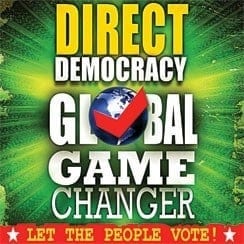 Moti Nissani’s Radio Sinoland Interview Part 2- 2015.7.5
Moti Nissani’s Radio Sinoland Interview Part 2- 2015.7.5
__________

“Compared to the better known surviving monuments of ancient Athens, such as the Parthenon, the Pnyx is unspectacular. It is a small hill surrounded by parkland, with a large flat platform of eroded stone set into its side. But it is one of the most significant sites in the city, and indeed in the world. For the Pnyx was the meeting place of the world’s first democratic legislature, the Athenian ekklesia (assembly), and the flat stone is the bema or speaker’s platform.”
***
Freedom is the sure possession of those alone who have the courage to defend it.–Pericles of Athens
The question is, if they [America’s Controllers] would do this . . . if they would feed radioactive oatmeal to helpless children and lie to them and their parents about it for years . . . well gee, is there anything they wouldn’t do?—Melissa Dykes, 2016
“We live on a planet well able to provide a decent life for every soul on it, which is all ninety-nine of a hundred human beings ask. Why in the world can’t we have it?”—Jack Finney
***
Why is the Invisible Government steadily growing in strength? Why are we being ruled by freeloaders and psychopaths? How do these criminals manage to saddle us with growing income inequalities, diminishing liberties, perpetual wars, and growing threats to the very survival of humanity itself? Among the many reasons accounting for this tragic decline, one stands out: Absence of real democracy.
Revolutionary strategists must also resolve two questions: How can they best structure their own movement? And: What kind of political framework should they aim for, once they relegate the Banking-Militarist Complex to the dustbin of history? The answer to these two questions is the same: real democracy. [1]
Hence, this posting focuses on benefits of real democracy and its differences from representative democracy (its mangled stepchild).
Democracy, for the Greeks who coined the word (but not the system), meant “power to the people” or “rule of the people.” Perhaps the best-known example of genuine democracy (but limited to the minority of male citizens) in a highly-advanced, highly-literate, polity, is Athens and her sister democracies of Ancient Greece. There, all significant political, legal, and judicial decisions were made directly by the adult male citizens. Democratic Athens went to war if, and only if, the majority of its citizens so voted; a man was exiled, or condemned to death, if, and only if, his fellow citizens so decreed. [2]
The USA, Britain, France—even better-governed Iceland and Switzerland—might or might not have free elections, but they are not democracies. As a result, in the USA, even when elections are not rigged and the friends of the people are not killed, the winners, once in power, routinely defy voters’ sentiments. Thus, for instance, most Americans did not wish go to war in 1917, were opposed to the repeated and vicious pulverization and colonization of Iraq, and have never been in favor of their country’s ongoing program of biospheric carnage. But in a “democracy,” American style, the majority’s preferences are routinely ignored.
Eduardo Galeano whimsically captures the essence of contemporary “democracies:”
 “The other day, I heard about a cook who organized a meeting of birds—chickens, geese, turkeys, peasants, and ducks. And I heard what the cook told them. The cook asked them with what sauce they would like to be cooked. One of the birds, I think it was a humble chicken, said: ‘We don’t want to be cooked in whichever way.’ And the cook explained that ‘this topic was not on the agenda.’ It seems to me interesting, that meeting, for it is a metaphor for the world. The world is organized in such a way that we have the right to choose the sauce in which we shall be eaten.” [my translation]
“The other day, I heard about a cook who organized a meeting of birds—chickens, geese, turkeys, peasants, and ducks. And I heard what the cook told them. The cook asked them with what sauce they would like to be cooked. One of the birds, I think it was a humble chicken, said: ‘We don’t want to be cooked in whichever way.’ And the cook explained that ‘this topic was not on the agenda.’ It seems to me interesting, that meeting, for it is a metaphor for the world. The world is organized in such a way that we have the right to choose the sauce in which we shall be eaten.” [my translation]
Overlapping Conceptual Barriers against Genuine Democracy
Our task is not simply proving the superiority of genuine democracy over all other known political systems, but also letting go of ingrained prejudices. [3]
Barrier 1: Cradle-to-Grave Propaganda System.
Genuine democracy—along with compassion and rationality—pose the greatest threat to the enemies of the biosphere and the open society. No wonder then that since infancy we have been inculcated against it. We have been lied to incessantly about the virtues of the Roman republic on the one hand, and about the horrors of “mob rule” on the other hand.
Such self-interested, ideologically- and philosophically-bankrupt, propaganda campaigns often meet with great success. For example, the oligarchs led us to revere such enemies of democracy in the Greek world as Plato, Aristotle, and Alexander the “Great.” At the same time, the oligarchs managed to obliterate the writings and all but erase from our memories such champions of liberty and decency as Democritus and Antisthenes.
Barrier 2: Opposition of Misguided or Bought Intellectuals
Throughout the ages, genuine democracy has been laughed at by self-serving, brilliant, oligarchs. A historian of Ancient Greece, writing in 1900, remarks that “few sights are stranger” than the spectacle of some Athenian intellectuals and first-rate thinkers “turning their eyes from their own free country to regard with admiration the constitution of Sparta,” where a free thinker “would not have been suffered so much as to open his mouth.”
The self-serving falsification of the historical record is widespread. Karl Popper:
“The history of the Peloponnesian war and the fall of Athens is still often told, under the influence of Thucydides’ authority, in such a way that the defeat of Athens appears as the ultimate proof of the dangerous weaknesses of the democratic system. But this view is merely a tendentious distortion, and the well-known facts tell a very different story. The main responsibility for the lost war rests with the treacherous oligarchs who continuously conspired with Sparta. . . . The fall of Athens, and the destruction of the walls, are often presented as the final results of the great war which had started in 431 B.C. But in this presentation lies the main distortion, for the democrats fought on. At first only seventy strong, they prepared under the leadership of Thrasybulus and Anytus the liberation of Athens, where Critias was meanwhile killing scores of citizens; for during the eight months of his reign of terror the death-role contained nearly a greater number of Athenians than the Peloponnesians had killed during the last ten years of war.”
“But after eight months (in 403 B.C.) Critias and the Spartan garrison were attacked and defeated by the democrats who established themselves in the Piraeus, and both of Plato’s uncles lost their lives in the battle. Their oligarchic followers continued for a time the reign of terror in the city of Athens itself, but their forces were in a state of confusion and dissolution. Having proved themselves incapable of ruling, they were ultimately abandoned by their Spartan protectors, who concluded a treaty with the democrats. The peace re-established the democracy in Athens. Thus the democratic form of government had proved its superior strength under the most severe trials, and even its enemies began to think it invincible.” [4]
Barrier 3: The Ruling Faction of America’s Revolutionaries was thoroughly Anti-Democratic
For Americans, there is still one more block on their ideological journey towards genuine democracy. Some founding fathers came close to being genuine democrats, but the winning faction falsely (and self-servingly) equated democracy with mob rule.
Citizens of the USA are taught to admire the revolutionary founders of their republic. Americans are not, however, often reminded how averse some of these founders were to the Bill of Rights, how they betrayed their countrymen by establishing the Rothschild-controlled First Bank of the United States, how they brutally suppressed popular uprisings, how the money lenders were already exerting influence at the Constitutional Convention, [5] and how close their country came, during the Adams, Lincoln, Wilson, or Obama presidencies, to establishing a dictatorship. These betrayals have been glossed over by the official record, so Americans find it hard to believe that their brilliant, idealistic–and wealthy–founding fathers chose a second-best political system for their contemporaries and descendants.
The Evidence from Anthropology
Marvin Harris’ “Life without Chiefs” shows that the current economic/political system—a system characterized by have and have-nots, rulers and ruled—is a historical aberration:
Once we are clear about the roots of human nature, for example, we can refute, once and for all, the notion that it is a biological imperative for our kind to form hierarchical groups. An observer viewing human life shortly after cultural takeoff would easily have concluded that our species was destined to be irredeemably egalitarian except for distinctions of sex and age. That someday the world would be divided into aristocrats and commoners, masters and slaves, billionaires and homeless beggars would have seemed wholly contrary to human nature as evidenced in the affairs of every human society then on Earth.
1. The Natural State for Human Beings is Life in Nomadic Tribes or Villages
For about 98 percent of our existence as a species (and for four million years before then), our ancestors lived in small, largely nomadic hunting-and-gathering bands.
2. The Natural Political System is Real Democracy and the Absence of Rulers
To the extent that political leadership exists at all among band-and-village societies, it is exercised by individuals called headmen. These headmen, however, lack the power to compel others to obey their orders. . . . Among the !Kung, each band has its recognized leaders, most of whom are males. These men speak out more than others and are listened to with a bit more deference. But they have no formal authority and can only persuade, never command. When Lee asked the !Kung whether they had headmen—meaning powerful chiefs—they told him, “Of course we have headmen! In fact, we are all headmen. Each one of us is headman over himself.”
Native Americans enjoyed similar freedoms. Speaking of the Iroquois at the time, Cadwallwer Coldwell said:
They hold “such absolute notions of liberty that they allow of no kind of superiority of one over another, and banish all servitude from their territories.”
Charles Mann, in his book “1491 (Second Edition): New Revelations of the Americas Before Columbus” quotes Jesuit Priest Louis Henneppin:
Native Americans were “born, live, and die in a liberty without restraint; they do not know what is meant by bridle and bit.”
They brand us [Europeans] as slaves, and call us miserable souls, whose life is not worth having. Individual Indians “value themselves above anything that you can imagine, and this is the reason they always give for it, that one’s as much master as another, and since men are all made of the same clay there should be no distinction or superiority among them.”
Among the Eskimos of northern Canada there was no law except public opinion. Although no one had authority, each person had influence according to the respect won from a community which had intimate knowledge of everybody.
3. Real Democracy Prevents the Ascent of Freeloaders and Psychopaths to Positions of Power
One of the chief characteristics of modern societies is the power of psychopaths. Martha Stout describes the Sociopath Next Door:
Imagine – if you can – not having a conscience, none at all, no feelings of guilt or remorse no matter what you do, no limiting sense of concern for the well-being of strangers, friends, or even family members. Imagine no struggles with shame, not a single one in your whole life, no matter what kind of selfish, lazy, harmful, or immoral action you had taken. And pretend that the concept of responsibility is unknown to you, except as a burden others seem to accept without question, like gullible fool. Now add to this strange fantasy the ability to conceal from other people that your psychological makeup is radically different from theirs. Since everyone simply assumes that conscience is universal among human beings, hiding the fact that you are conscience-free is nearly effortless. You are not held back from any of your desires by guilt or shame, and you are never confronted by others for your coldbloodedness. The ice water in your veins is so bizarre, so completely outside of their personal experience, that they seldom even guess at your condition.
In other words, you are completely free of internal restraints, and your unhampered liberty to do just as you please, with no pangs of conscience, is conveniently invisible to the world. You can do anything at all, and still your strange advantage over the majority of people, who are kept in line by their consciences will most likely remain undiscovered.
How will you live your life? What will you do with your huge and secret advantage, and with the corresponding handicap of other people (conscience)? The answer will depend largely on just what your desires happen to be, because people are not all the same. Even the profoundly unscrupulous are not all the same. Some people – whether they have a conscience or not – favor the ease of inertia, while others are filled with dreams and wild ambitions. Some human beings are brilliant and talented, some are dullwitted, and most, conscience or not, are somewhere in between. There are violent people and nonviolent ones, individuals who are motivated by blood lust and those who have no such appetites. . . .
Provided you are not forcibly stopped, you can do anything at all.
If you are born at the right time, with some access to family fortune, and you have a special talent for whipping up other people’s hatred and sense of deprivation, you can arrange to kill large numbers of unsuspecting people. With enough money, you can accomplish this from far away, and you can sit back safely and watch in satisfaction. . . .
Crazy and frightening – and real, in about 4 percent of the population”….
Our ancestors had a fantastic system for sidelining such dangerous people. Marvin Harris:
Inevitably there were freeloaders, individuals who consistently took more than they gave and lay back in their hammocks while others did the work. Despite the absence of a criminal justice system, such behavior eventually was punished. . . . quarrelsome, stingy people who do not give as well as take had better watch out.
It is nearly impossible, when you know how primitive society works under communistic anarchy, to conceive of anyone with the combination of indolence and strength of character which would make it possible for a healthy man to remain long a burden on the community. Those who were useful to the community, who fitted well into the community pattern, were leaders. It was these men who were so often wrongly identified by the careless early-civilized traveler and the usual trader as chiefs. They were not chiefs, for they had no authority; they had nothing but influence. People followed their advice because they believed it to be sound. If you tried to keep more than your share you became unpopular. If you were persistently selfish, acquisitive, and careless of the general good you gradually became too unpopular. Realizing this, very likely you would try moving to another community and starting life there over again. If you persisted in your ways and stayed where you were there would come a period of unanimous disapproval. You might survive for a year or even a few years as an unwanted hanger-on; but the patience of the community might at any time find its limit, and there would be one more execution of a troublemaker.
4. Economic Egalitarianism, Civility, and Hospitality
“The absence of private possession in land and other vital resources means that a form of communism probably existed among prehistoric hunting and collecting bands and small villages.”
Stefansson describes Inuit society in the first decade of the 20th century:
The system which I watched breaking down under the combined influence of Christianity and the fur trade was on its economic side communism. Natural resources and raw materials were owned in common, but made articles were privately owned.
Canassetego, a Mohawk, captures one difference between real and self-described democrats (as retold by Benjamin Franklin):
You know our Practice. If a white Man in travelling thro’ our Country, enters one of our Cabins, we all treat him as I treat you; we dry him if he is wet, we warm him if he is cold, we give him Meat & Drinks that he may allay his Thirst and Hunger, and spread soft Furs for him to rest & sleep on: We demand nothing in return. But if I go into a white Man’s House at Albany, and ask for Victuals & Drink, they say, where is your Money? And if I have none; they say, Get out you Indian Dog.
5. Overall, Hunter-Gatherers were Happier than we are
Here are two examples:
[The Copper Eskimos were] “to all appearances so much happier than any other people whom I have ever known.” On the basis of my years with the Stone Age Eskimos I feel that the chief factor in their happiness was that they were living according to the Golden Rule. It is easier to feel that you can understand than to prove that you do understand why it is man gets more happiness out of living unselfishly under a system which rewards unselfishness than from living selfishly where selfishness is rewarded. Man is more fundamentally a co-operative animal than a competitive animal. His survival as a species has been perhaps through mutual aid rather than through rugged individualism. And somehow it has been ground into us by the forces of evolution to be “instinctively” happiest over those things which in the long run yield the greatest good to the greatest number.
I wondered if all the thousands of intervening years had brought the measure of happiness to some of us that these people enjoy, for they do enjoy life every day, dancing and chanting, visiting one another, hunting when necessary. This is their life, simple in all its elements, from the day of birth until death claims their pygmy bodies.” [6]
6. Were Freedom and the Golden Rule a Key to our Ancestors’ Happiness?
Stefansson writes:
On the basis of my years with the Stone Age Eskimos I feel that the chief factor in their happiness was that they were living according to the Golden Rule.
It is easier to feel that you can understand than to prove that you do understand why it is man gets more happiness out of living unselfishly under a system which rewards unselfishness than from living selfishly where selfishness is rewarded. Man is more fundamentally a co-operative animal than a competitive animal. His survival as a species has been perhaps through mutual aid rather than through rugged individualism. And somehow it has been ground into us by the forces of evolution to be “instinctively” happiest over those things which in the long run yield the greatest good to the greatest number.
7. How Paradise Was Lost
With agriculture and storage of food, according to Harris, eventually stratification arrived. Gradually, real chiefs and inequality arose, leading to our present hierarchical system: “Chiefdoms would eventually evolve into states, states into empires.”
But, one must ask: Can such a system work among literate people? We shall now show that, among other things, a version of real democracy flourished in ancient Athens: the most creative and culturally-advanced country that has ever graced our weary planet.
Athenian Democracy
“Man’s law of nature is equality.”—Euripides
Some of the advantages of genuine democracy are immediately apparent. Unlike contemporary western republics, in Athens, promises to the people could not be as readily broken, for the people were always in charge. Influential Athenians (especially the oligarchic variety) were just as bribable as their contemporary western counterparts, but in a system where real power, at any given moment, resided with the citizenry, the damage was more limited. The information system in Athens was never taken over by the oligarchs and life was simpler, so the people could more readily vote for their interests and convictions. For the most part, Athenians breathed cleaner air, drank chemical-free water, and ploughed healthier soils for their sustenance; their schools were private (not state-run), and they exercised daily; they were thus in better mental and physical shape than contemporary Americans or Greeks. Hence, in ancient Athens, human beings came close to their truer intellectual, artistic, and civic potential. In a partially real democracy like Athens, dissident organizations could not be readily co-opted, elections and trials could not be as readily rigged, and politically-motivated assassinations were rare. Overall, the Athenian system served the public interest far better than American oligarchy.
The ancient Greeks recognized the link between genuine democracy and greatness. The historian Herodotus, himself not an Athenian, clearly perceived the causal connection between freedom and excellence:
“Thus did the Athenians increase in strength. And it is plain enough, not from this instance only, but from many everywhere, that freedom is an excellent thing since even the Athenians, who, while they continued under the rule of tyrants, were not a whit more valiant than any of their neighbors, no sooner shook off the yoke than they became decidedly the first of all. These things show that, while undergoing oppression, they let themselves be beaten, since then they worked for a master; but so soon as they got their freedom, each man was eager to do the best he could for himself. So fared it now with the Athenians.”
Pericles, an influential Athenian before and during part of the Peloponnesian War, put it this way:
“Our political system does not compete with institutions which are elsewhere in force. We do not copy our neighbors, but try to be an example. Our administration favors the many instead of the few: this is why it is called a democracy. The laws afford equal justice to all alike in their private disputes, but we do not ignore the claims of excellence. When a citizen distinguishes himself, then he is preferred to the public service, not as a matter of privilege, but as a reward of merit; and poverty is no bar. . . The freedom we enjoy extends also to ordinary life; we are not suspicious of one another, and do not feel called upon to nag our neighbor if he chooses to go his own way. . . But this freedom does not make us lawless. We are taught to respect the magistrates and the laws, and never to forget that we must protect the injured. And we are also taught to observe those unwritten laws whose sanction lies only in the universal feeling of what is right. . .
“Our city is thrown open to the world; we never expel a foreigner. . . We are free to live exactly as we please, and yet are always ready to face any danger. . . We love beauty without becoming extravagant, and we cultivate the intellect without lessening our resolution. . . To admit one’s poverty is no disgrace with us; but we consider it disgraceful not to make an effort to avoid it. An Athenian citizen does not neglect public affairs when attending to his private business. . . We consider a man who takes no interest in the state not as harmless, but as useless; and although only a few may originate a policy, we are all able to judge it. We do not look upon discussion as a stumbling block in the way of political action, but as an indispensable preliminary to any wise action at all. . . We believe that happiness is the fruit of freedom and freedom of valor, and we do not shrink from the danger of war. . . To sum up, I claim that Athens is the School of Hellas, and that the individual Athenian grows up to a happy versatility and to a readiness for varied emergencies—to self-reliance.”
Unlike the United States, which has always foisted oligarchic governments in its empire, the Athenians supported genuine democracies in theirs.
Athenian lawmakers understood human weaknesses, and they knew from bitter experience how bribery could undermine justice. Obviously, it is easier to bribe, and deform a passion for justice in, a judge than a jury, and hence, all trials involved a jury of one’s peers. The people, not paid experts, were deemed most qualified to decide judicial cases. There was no presiding judge telling jurors that their task was to serve an abstract law (as opposed to simple justice). Nor was there a jury-free appeal system, which often, in America, nullifies the people’s verdict.
But Athenian jurors were definitely corruptible too. To minimize that problem, juries in important cases were randomly selected from the entire citizen body and numbered 201-501 or more (roughly 0.7%-1.7% or more of the 30,000 or so adult male citizens). [7] Often the caseload was too heavy, and so the number of jurors for each particular trial was reduced to fifty. Now, a rich man might try to bribe all fifty, so the legal system placed a safeguard against that eventuality: The decision as to which 50 jurors of the 500 would be assigned to any given case was often made by lottery, just before the trial began.
Steven Johnstone summarizes the Athenian judicial system: [7]
Athenians performed democracy daily in their law courts. Without lawyers or judges, private citizens, acting as accusers and defendants, argued their own cases directly to juries composed typically of 201 to 501 jurors, who voted on a verdict without deliberation. This legal system strengthened and perpetuated democracy as Athenians understood it, for it emphasized the ideological equality of all (male) citizens. . . . Laws against bribery, panels of several hundred jurors, and random assignment to the courts, effectively curtailed the direct influence of wealth on trials.”
The Athenians knew that power-seekers could not be trusted, so they filled many important public offices by lot. Moreover, most office holders maintained their positions for extremely short durations. Athens thereby bypassed, to a certain extent, a key problem in all other extant political systems: The ascendancy of freeloaders and psychopaths.
The Athenians did not give their rich people tax cuts and bailouts. They thus avoided an ever-growing mal-distribution of wealth. Athenians respected private property and wealth, but expected their leisure class to make greater contributions to the public, by sponsoring musical festivals or dramas (another Greek word), for example. When the majority decided to go to war, the rich had to risk their lives too. Moreover, in times of war, each rich man was expected to contribute one battleship to the navy of the city—that is where our word liturgy came from (public service; literally, a public building).
The contemporary decline of oligarchies like the USA or Norway can be explained in part by their system of banking and money creation. In these nations, the bankers in charge of money creation try to fabricate the impression that the private, for-profit, central banks are under public control. Witness for example the names they choose for their key institutions—Bank for International Settlements, World Bank, International Monetary Fund, Federal Reserve, Bank of England, First Bank of the United States. In reality, these institutions are controlled by a few banking families. The politicians, media, the bought economic profession, pretend that these privately-controlled institutions serve the public interest, but the reality is the exact opposite: The only goal of these institutions is to further enrich and empower their owners, and they accomplish these goals by impoverishing and enslaving the vast majority. These institutions do not serve a nation—they parasitize it. They are worse than the black plague, because they never go away. Instead, they steadily, mercilessly, and incessantly devour their host. They are, by far, public enemy number one. This, along with the fraudulent fractional reserve system, permit the concentration of wealth and political power in the hands of the banking octopus and its military, academic, drug, death squads, industry, health, farming, mining, and “religious” tentacles. It also permits destructive and deliberate manipulations of the money supply, and the devastating boom-and-bust economic cycles which further enrich and empower a few banking families and enslave the public at large. I wrote about this banking plague elsewhere, but for the moment let me just say this: If I were forced to choose between the current rule of bankers or the rule of the Mafia, I’d choose the Mafia, any day, any time.
The Athenians, by contrast, did not have that parasitic fifth column in their midst. They had access to plenty of silver in their own national territory, and the state (not private interests) issued the national silver or copper currency. The state did not accumulate debt as a matter of course, did not suffer the depredations of fractional reserve money creation, nor planned booms and busts. The Athenians thus avoided the horrors of a bankers-dominated economic and political system.
Another salient feature of Athenian democracy involved ostracism (their word). Athenian democrats well knew that their worst enemies were the oligarchs within their own walls. In rare cases, these traitors were brought to trial and executed. But the Athenians did try to live up to their ideal of moderation. Individuals who were deemed a threat to the democracy were selected by an anonymous vote of the assembly and ordered to leave the city for ten years. They retained their citizenship and possessions but were required to remain in exile. By law, only one person could be ostracized in any given year. As a matter of historical record, though, ostracism was rarely applied.
The remarkable political maturity, compassion, and tolerance of a free people can perhaps be best captured through two specific historical examples.
The first involves post-war reconciliation. A contemporary legal scholar holds that the first well-documented example of a
“self-conscious transitional justice policy is provided by the classical Athenians’ response to atrocities committed during the reign of the Thirty Tyrants . . . The Athenians carefully balanced retribution and forgiveness . . . remembering and forgetting.”
Another historian comments on the same historical occurrence:
“In 404 BCE the Peloponnesian War finally came to an end, when the Athenians, starved into submission, were forced to accept Sparta’s terms of surrender. Shortly afterwards a group of thirty conspirators, with Spartan backing (“the Thirty”), overthrew the democracy and established a narrow oligarchy. Although the oligarchs were in power for only thirteen months, they killed more than 5 percent of the citizenry and terrorized the rest by confiscating the property of some and banishing many others. Despite this brutality, members of the democratic resistance movement that regained control of Athens came to terms with the oligarchs and agreed to an amnesty that protected collaborators from prosecution for all but the most severe crimes.”
Does this exceptional act of amnesty (their word) and forgiveness sound like mob rule?
Another touching example of Athenian greatness, of compassion in the midst of a struggle for national and personal survival, is related by Thucydides:
“Immediately after the invasion of the Peloponnesians all Lesbos [a Greek island], except Methymna, revolted from the Athenians. . . . However, the Athenians, distressed by the plague, and by the war that had recently broken out and was now raging, thought it a serious matter to add Lesbos with its fleet and untouched resources to the list of their enemies; and at first would not believe the charge, giving too much weight to their wish that it might not be true. But when an embassy which they sent had failed to persuade the Mitylenians to give up the union and preparations complained of, they became alarmed, and resolved to strike the first blow.” After a prolonged siege, the Athenians prevailed, and, at first, the assembly sent a trireme with the order to execute all the men of the rebellious island, and to enslave the women and children. The following day the assembly reconvened, and narrowly voted to overturn the first vote, and spare the lives of most Lesbians: “Another galley was at once sent off in haste, for fear that the first might reach Lesbos in the interval, and the city be found destroyed; the first ship having about a day and a night’s start. Wine and barley-cakes were provided for the vessel by the Mitylenian ambassadors, and great promises made if they arrived in time; which caused the men to use such diligence upon the voyage that they took their meals of barley-cakes kneaded with oil and wine as they rowed, and only slept by turns while the others were at the oar. Luckily they met with no contrary wind, and the first ship making no haste upon so horrid an errand, while the second pressed on in the manner described, the first arrived so little before them, that Paches had only just had time to read the decree, and to prepare to execute the sentence, when the second put into port and prevented the massacre. The danger of Mitylene had indeed been great.”
Ask yourself: Have the Roman or American republics just once behaved thus? And if not, isn’t it high time that we reclaim as our own a political system capable of such wartime wisdom and compassion?
Other Key Features of Athenian Democracy were:
- Near economic self-sufficiency of the average household
- A genuine free enterprise system (largely absent in modern so-called capitalist societies)
- A less materialistic world view
- A small state
- Minimal taxation in times of peace
- Involvement of the majority in civic affairs
Athens was certainly no utopia. Slavery was widespread and neither women, nor foreign immigrants, nor even the Athens-born descendants of these foreigners, enjoyed the full franchise. [8]
The Athenian Empire often exploited and lorded over its member states, at times brutally and cynically suppressing defections. Influential Athenians were eminently bribable and often betrayed their city. Athenians seemed unable to entertain the notion of a genuine union on equal terms with sister democracies (a proposal made by Isocrates, among others), and were thus, in the end, enslaved by the Macedonian dictatorship. But Athens, I believe, still provides one starting point for the design of a free, rational, and compassionate society:
Within the body of citizens, the Athenians achieved a degree of political equality that minimized the claims of wealth to a degree unparalleled in most societies, certainly in our own.” [7]
We can adopt the basic framework of such genuine democracies as the illiterate Inuit or !Kung societies of two centuries ago, the semi-literate Iroquois, and the highly-literate Athenians, while rejecting their injustices, weaknesses, and superstitions.
Three Modern Examples of Genuine Democracy in Action
In some contemporary oligarchies, on rare occasions, the people are allowed to decide an issue directly (through a referendum), without massive rigging. In such rare democratic outbursts, the people often vote wisely. Here are two examples.
The Italian Demos vs. Nuclear Power
We have been warned about the menace of atomic energy right from the beginning of the nuclear age. Many years later, in 1977, for instance, Ralph Nader and John Abbot wrote:
“What technology has had the potential for both inadvertent and willful mass destruction . . . for wiping out cities and contaminating states after an accident, a natural calamity, or sabotage? What technology has been so unnecessary, so avoidable by simple thrift or by deployment of renewable energy supplies?”
When the decision is left to the psychopaths, they of course choose short-term gains, empowerment, and raw materials for nuclear bombs, even though a nuclear power plant may consume more energy than it produces! After them, they might think, is the deluge. But when the people are allowed to decide, they often make the right decision, the bankers’ propaganda avalanche notwithstanding:
“Italy is a nuclear free zone since the Italian nuclear power referendum of November 1987. Following center-right parties’ victory in the 2008 election, Italy’s industry minister announced that the government scheduled the construction to start the first new Italian nuclear-powered plant by 2013. The announced project was paused in March 2011, after the Japanese earthquake, and scrapped after a referendum on 12–13 June 2011.”
The Icelandic Demos vs. the International Bankers
The global economic crisis is now in its eighth year, and, the propaganda system notwithstanding, the situation is getting steadily worse. Real unemployment is nearing levels of the great depression while the middle class is steadily losing ground. Given the growing misery of the American people, one would think that the USA would stop its extremely costly wars of aggression, yet the United States is spending even more on killing innocents abroad. One would think that the USA would stop producing weapons of mass destruction that could kill billions or even bring history to an end, but in fact they are building more such weapons and deliberately risking an all-out nuclear war. One would think that the USA would dismantle its extremely costly police state apparatus, but the bankers and their puppets are actually spending more money on subjugating, humiliating, incarcerating, and killing the American people. One would think that, in such hard times, greater income equality would be attempted, but in fact the gap between rich and poor has grown by leaps and bounds from 2008 to 2016. One would think that the DC syndicate would permit the bankruptcy of the international banks that caused the crisis to begin with, and which, moreover, according to this syndicate’s self-professed capitalist (let alone Christian) ideology, are too big to exist. But just the opposite is taking place: to prevent the deserved bankruptcy of these banks, our politicians (that is, the big bankers themselves or their pawns) have robbed the world’s people of trillions and they have, moreover, declared the robber bankers too big to jail. Consequently, the economic hard times will continue unabated, or grow far worse, for years and years.
As of August 2016, there has been only one exception to this sad tale of gargantuan theft—Iceland. There, thanks to an inordinately courageous and decent president, the people were allowed to decide their fate, twice, despite the strenuous opposition of the international bankers. “These were private banks,” said Iceland’s president, “and we didn’t pump money into them in order to keep them going; the state did not shoulder the responsibility of the failed private banks.” The people voted and, consequently, Iceland is now in far better economic shape than countries such as Greece, Spain, or the USA. In Iceland, too, some bankers actually ended up paying for their crimes, and the country has, in the wake of the crisis, moved in a more democratic direction. The people of Iceland
“took a different path than the United States after their financial crisis and nationalized the banks, threw some the people responsible for the crash in jail, and bailed out the homeowners instead of worrying about only bailing out the banks. And now they’re coming back and their economy is growing again.”
Even the corporate press, on the rare occasions when it covers the Icelandic story, underscores the fabulous potential of genuine democracy:
“Icelanders who pelted parliament with rocks in 2009 demanding their leaders and bankers answer for the country’s economic and financial collapse are reaping the benefits of their anger. Since the end of 2008, the island’s banks have forgiven loans equivalent to 13 percent of gross domestic product, easing the debt burdens of more than a quarter of the population . . . The island’s steps to resurrect itself since 2008, when its banks defaulted on $85 billion, are proving effective. Iceland’s economy will this year [2012] outgrow the euro area and the developed world on average . . . The island’s households were helped by an agreement between the government and the banks, which are still partly controlled by the state, to forgive debt exceeding 110 percent of home values. On top of that, a Supreme Court ruling in June 2010 found loans indexed to foreign currencies were illegal, meaning households no longer need to cover krona losses. . . . Iceland’s $13 billion economy, which shrank 6.7 percent in 2009, grew 2.9 percent last year and will expand 2.4 percent this year and next . . . The euro area will grow 0.2 percent this year and the OECD area will expand 1.6 percent, according to November estimates. . . . Iceland’s approach to dealing with the meltdown has put the needs of its population ahead of the markets at every turn. Once it became clear back in October 2008 that the island’s banks were beyond saving, the government stepped in, ring-fenced the domestic accounts, and left international creditors in the lurch. The central bank imposed capital controls to halt the ensuing sell-off of the krona and new state-controlled banks were created from the remnants of the lenders that failed. Iceland’s special prosecutor has said it may indict as many as 90 people, while more than 200, including the former chief executives at the three biggest banks, face criminal charges. . . . That compares with the U.S., where no top bank executives have faced criminal prosecution for their roles in the subprime mortgage meltdown.”
The Berlin Philharmonic
My chief goal in writing this article is the starry-eyed dream of helping, in a small measure, to save our species from its most probable fate–perpetual wars, growing economic inequalities, totalitarianism and, within a couple of centuries at the most, extinction. This dire future can be directly traced to scandalously criminal political mismanagement of humanity and the biosphere; hence this article focused on real democracy as the organizing principle of all future political organizations. I must make it clear, however, that direct democracy is, in my view, the best way of organizing each and every human collective, including such things as factories, soccer teams, armies (until we abolish them), and the arts.
One successful example of genuine democracy outside the political arena is the Berlin Philharmonic, one of the world’s leading orchestras (see for instance, Thomas Grube’s documentary, Trip to Asia).
Let us look at what one commentator has to say about this “coolest band in the world:”
“When the Berlin Philharmonic was created in 1882, its fifty-two musicians decided to do business differently. They wanted a democratic system that not only involved the musicians, but empowered them as well. . . . It is the musicians who manage themselves, from scheduling concerts, to making tour arrangements, or handling delicate personnel matters. . . . the audition process is totally inclusive. Every member of the orchestra takes part forming an audience for the auditioning candidates on the stage of the Philharmonie [the orchestra hall]. There are 128 votes and the Chief Conductor, like everyone else, has just one. The audition tests stylistic understanding and qualities of sound and expression. Technique is a given but never used as the main criterion. I was told by one player that he and his colleagues were looking ‘to have their souls touched by the music-making.’ . . . Base salary is €90,000 gross for all rank and file players. Principals receive 15% extra. There is no individual negotiation of personal contracts as in the USA. Transparency and equity are seen as essential to solidarity. . . . Besides playing in the Orchestra every musician is expected to be a soloist, perform chamber music, and contribute to the overall vision of the Orchestra. . . . The Berliners take a broad view of their responsibilities as musicians. Besides the established concert series in the Philharmonie, the musicians are involved in community work that is remarkable for the depth of its engagement and interactivity. . . . The musicians’ work touches many, from kindergarteners to prisoners, from teachers to lifelong learners. There is no contractual obligation for the musicians to do this work. They are paid no additional fees–just travel expenses. They do it because they understand the inherent transformative power of music and want to share that with audiences who have not previously experienced it.”
“The last time I saw the Berlin Phil I thought it was the greatest orchestra I had ever heard. I thought that the time before, too. The performances have such energy, such commitment, such movement, indeed the musicians move physically with the music. Even their very presence on stage speaks of a different level of communication and engagement. I was very much taken by their tradition at the end of the concert of shaking hands and thanking their colleagues. . . . Their model is not the vision of any one leader. It comes instead from a collective of musicians who are empowered to be creative with new ideas, new directions, and new challenges.”
A Philosophical Defense of Genuine Democracy
My focus in this article has been empirical. That is, I believe that the historical record provides the best way of proving the superiority of real democracy over any other form of government. But genuine democracy can also be defended on philosophical grounds. Here for instance is John Stuart Mill, a 19th century scholar: [9]
“The ideally best form of government is that in which the sovereignty, or supreme controlling power in the last resort, is vested in the entire aggregate of the community, every citizen not only having a voice in the exercise of that ultimate sovereignty, but being, at least occasionally, called on to take an actual part in the government . . . Its superiority . . . rests upon two principles . . . The first is, that the rights and interests of every or any person are only secure from being disregarded when the person interested is himself able, and habitually disposed to stand up for them. The second is that the general prosperity attains a great height, and is more widely diffused, in proportion to the amount and variety of the personal energies enlisted in promoting it.”
Also, real democracy, by its very nature, minimizes psychopathic interferences, anti-social behavior, and income inequalities. It confirms its members’ views that they are masters of their own fate, and produces overall happier people than any other alternative. Such a society is therefore more likely to enjoy greater cohesion and prosperity.
Finally, success depends on a system’s willingness to acknowledge, and learn from, its mistakes and to adopt policies that serve the public interest. In totalitarian societies or oligarchies, policy makers can suppress evidence that they made a mistake or acted selfishly and shoot anyone who somehow finds out the truth and who proceeds to recommend the needed changes. In republics like the USA or France, the same suppression is commonplace, albeit it is not as obvious to ordinary citizens. In either case, unwise or selfish policies are likely to persist. In contrast, in real democracies, the truth comes out more readily and it is more likely to lead to criticism, debate, and a change of course. Thus, real democracies enjoy a built-in corrective mechanism which assures communally-minded, wiser, more efficient, sustainable, and just policies. [10, 11]
Closing Remarks
It is no accident that, when given a choice, the Italian people rejected nuclear power, despite massive false advertising by the moneylenders. It is no accident that, as of June 2015, the only country with any chance of escaping serfdom, Iceland, was able to do so through a referendum, despite massive false advertising by the moneylenders. It is no accident that the Berlin Philharmonic is, perhaps, the world’s leading orchestra. What worked so well for the Ancient Athenians, for the Iroquois Confederacy, and for most of our hunter-gatherer ancestors, is obviously working just as well for any country or organization choosing to give genuine democracy a chance.
The demonstrable superiority of real democracy to all other political systems tells us that, when given a chance, most of us are fundamentally decent and rational. We ought to do everything we can to give ourselves that chance.
For revolutionary advocates of real democracy, the key question is: How do we get there? The answer is threefold.
First, our own organizations must follow a variation of the Iroquois or Athenian models of real democracy.
Second, when it comes to nations like Iceland or Switzerland (which enjoy a measure of independence from the Invisible Government’s interference in their internal affairs), the transition might be achieved peacefully. Such a transition would involve internal educational and political campaigns, as well as tactical moves against subversion, economic blackmail, assassinations, media campaigns, and invasions.
Third, when it comes to oligarchies like Russia, China, or the USA and its many colonies (e.g., France, Japan, Saudi Arabia), where the oligarchs are too entrenched to be removed by peaceful revolution, the answer is the same as it was in the days of Thrasybulus: Violent revolution. But, can an ordinary popular uprising succeed nowadays, given the extraordinary power of contemporary oligarchs and their expertise in co-opting, impoverishing, killing, or brainwashing the vast majority? Tragically, the answer is: Almost certainly not. For better or worse, eventually, a more effective way will be re-discovered.
Notes and References
1. The Orwellian term for real democracy is direct democracy. This misleading term must be avoided because it implies that there are two legitimate variants of democracy: direct and indirect (representative). To our ancestors, indirect democracy would be equivalent to soundless tam-tam or arrowless archery.
2. Democratic Athens practiced slavery and excluded women and Athenian-born residents of foreign extraction from the privileges of citizenship. We can still derive many lessons from Ancient Athens, with the obvious proviso that any future real democracy will extend the full franchise of freedom and citizenship to all adult members.
3. One of the greatest tragedies of the human condition is our reluctance to let go of long-held convictions, even when presented with overwhelming evidence against them. We know this from everyday observations of others, and also, if we are honest with ourselves, from introspection. There is also some striking experimental evidence showing that this is so:
“Subjects were recruited to evaluate the efficacy of a self-contained instructional manual. Before they could provide the needed appraisal, they were told, they needed to acquire a first-hand experience of its content by studying it and following the instructions it provided for about four hours. At some point in the teaching process, the manual introduced a false volume formula for a sphere–a formula which led subjects to believe that spheres are 50% larger than they are. Subjects were then given an actual sphere and asked to determine its volume; first by using the formula, and then by filling the sphere with water, transferring the water to a box, and directly measuring the volume of the water in the box. The key question was: Would subjects believe the evidence of their senses and abandon their prior beliefs in the formula, the competence of the experimenter, and the legitimacy of the entire setup? Preliminary observations suggested that the task was far more difficult than expected: no subject decisively rejected the false formula or declined to use it in subsequent tasks. In later experiments various attempts were made to ease the conceptual transition called for by this experiment. In one variation all subjects held a Ph.D. degree in a natural science and were employed as research scientists and professors in two major research universities. A special section–involving measurements of a second ball–was introduced and constructed with the deliberate aim of helping these scientists break away from the false formula. In another variation, the discrepancy concerned the circumference of an ellipse, thereby ruling out the possibility that earlier results were ascribable to the difficulty of dealing with three dimensional concepts. But none of these variations substantially altered the initial results.”
We must recall this, before dismissing real democracy–or any other challenge to our conceptions.
4. After the fall of democratic Athens, the writings of the friends of democracy were deliberately destroyed—the oligarchs and Catholic Church understood well the subversive power of real democracy and the heroic appeal of men such as Thrasybulus. The oligarchic campaign against real democracy is still very much alive, again “leading many writers to minimize the accomplishments of . . . democracy’s strongest advocates.” (R. J. Buck, cited here).
5. Catherine Drinker Bowen, Miracle at Philadelphia, 1966.
6. Paul Hoefler, Africa Speaks, 1931, p. 351.
7. Steven Johnstone, Disputes and democracy, 1999.
8. At times, it must be admitted, ordinary people justify Plato’s scorn for democracy—or H. L. Mencken’s quip that “democracy is a pathetic belief in the collective wisdom of individual ignorance.“ In Athens too, the narrow-minded, self-destructive, bigotry of the people was at times appalling. After the restoration of real democracy, Thrasybulus deservedly became the “hero of the people.” And yet he failed to convince his comrades to extend citizenship to all the foreigners and Athenian-born descendants of foreigners who had fought alongside them against the bloodthirsty oligarchs. So, real democracy is far from perfect—and yet incomparably better than anything else.
9. Mill, Consideration on Representative Government, 1861. Mill goes on to say: “But since all can not, in a community exceeding a single small town, participate personally in any but some very minor portions of the public business, it follows that the ideal type of a perfect government must be representative.” There are good reasons to believe that Mill, had he lived now, would revise his opinion on this point. First, for Mill, the ideal form of government is real democracy, and representative democracy is only a second practical best. Second, with modern technology, any country, regardless of its size, could have daily plebiscites, if it so wished. In extremis, it could rely on polling techniques to ascertain the popular will. Third, given the utter subversion of representative governments by the money lenders, Mill would probably see that the only road to a genuine democracy is a variation of Athenian democracy. Fourth, real democracy would involve, Mill would probably agree, massive decentralization: dividing any country into geographical units of 40,000 souls or less, and severely limiting the powers of the central government.
10. Walt Whitman might have had something like this in mind when he wrote about “the democratic wisdom underneath, like solid ground for all” (see his poem, “The Commonplace”).
11. As far as I am aware, the first clear repudiation of the myth of authoritarian efficiency, and the most powerful theoretical explanation of real democracy’s greater observable efficiency, can be found in Karl R. Popper’s The Open Society and its Enemies. Like Mill, however, Popper failed to notice the sharp differences between real and representative democracies.
![]()
 is an organic farmer (in Argentina), a former university professor (in the USA), a jack of many trades, and the compiler of “ A Revolutionary’s Toolkit.”.
is an organic farmer (in Argentina), a former university professor (in the USA), a jack of many trades, and the compiler of “ A Revolutionary’s Toolkit.”.
=SUBSCRIBE TODAY! NOTHING TO LOSE, EVERYTHING TO GAIN.=
free • safe • invaluable
[email-subscribers namefield=”YES” desc=”” group=”Public”]
